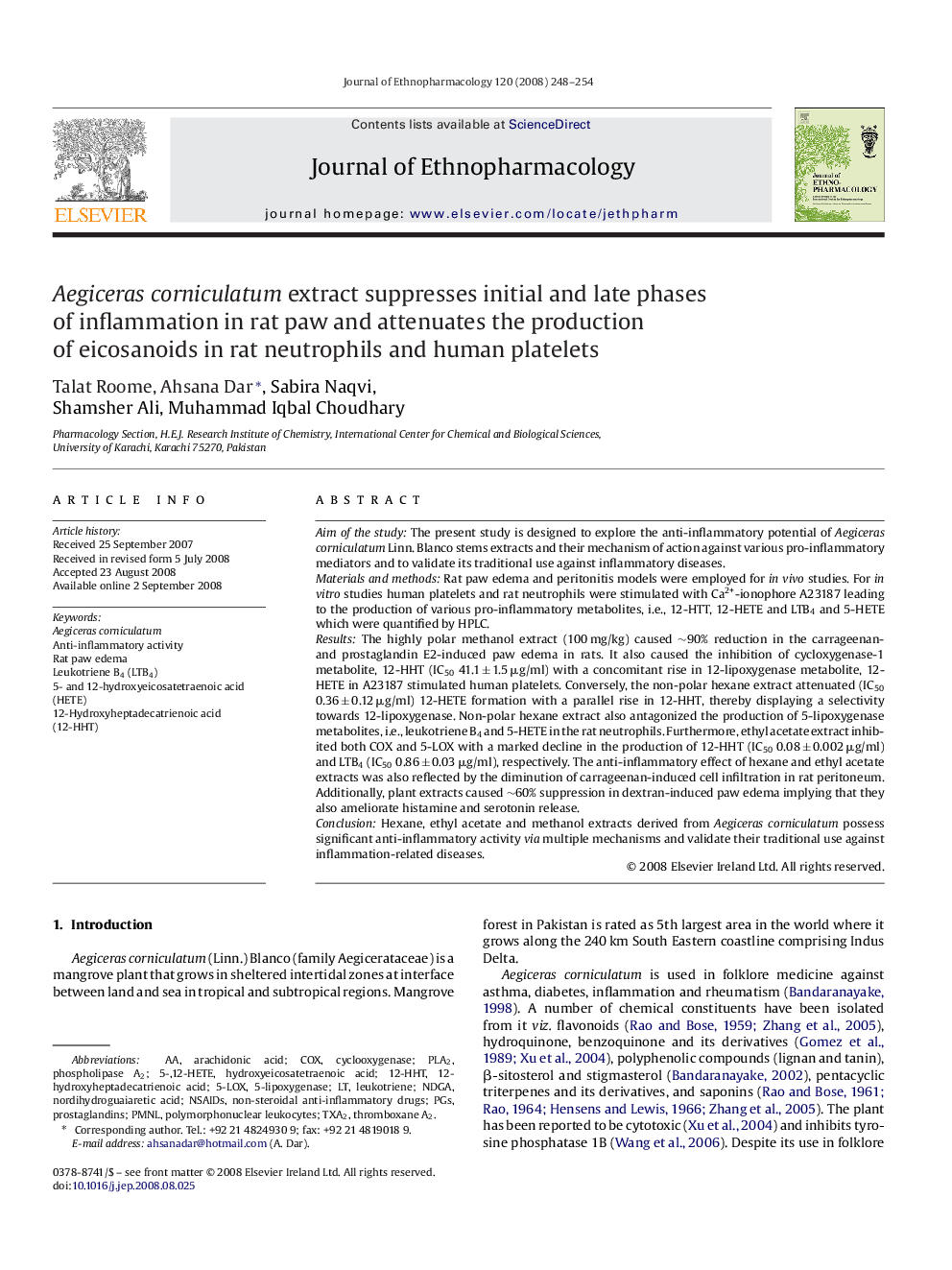| Article ID | Journal | Published Year | Pages | File Type |
|---|---|---|---|---|
| 2546855 | Journal of Ethnopharmacology | 2008 | 7 Pages |
Aim of the studyThe present study is designed to explore the anti-inflammatory potential of Aegiceras corniculatum Linn. Blanco stems extracts and their mechanism of action against various pro-inflammatory mediators and to validate its traditional use against inflammatory diseases.Materials and methodsRat paw edema and peritonitis models were employed for in vivo studies. For in vitro studies human platelets and rat neutrophils were stimulated with Ca2+-ionophore A23187 leading to the production of various pro-inflammatory metabolites, i.e., 12-HTT, 12-HETE and LTB4 and 5-HETE which were quantified by HPLC.ResultsThe highly polar methanol extract (100 mg/kg) caused ∼90% reduction in the carrageenan- and prostaglandin E2-induced paw edema in rats. It also caused the inhibition of cycloxygenase-1 metabolite, 12-HHT (IC50 41.1 ± 1.5 μg/ml) with a concomitant rise in 12-lipoxygenase metabolite, 12-HETE in A23187 stimulated human platelets. Conversely, the non-polar hexane extract attenuated (IC50 0.36 ± 0.12 μg/ml) 12-HETE formation with a parallel rise in 12-HHT, thereby displaying a selectivity towards 12-lipoxygenase. Non-polar hexane extract also antagonized the production of 5-lipoxygenase metabolites, i.e., leukotriene B4 and 5-HETE in the rat neutrophils. Furthermore, ethyl acetate extract inhibited both COX and 5-LOX with a marked decline in the production of 12-HHT (IC50 0.08 ± 0.002 μg/ml) and LTB4 (IC50 0.86 ± 0.03 μg/ml), respectively. The anti-inflammatory effect of hexane and ethyl acetate extracts was also reflected by the diminution of carrageenan-induced cell infiltration in rat peritoneum. Additionally, plant extracts caused ∼60% suppression in dextran-induced paw edema implying that they also ameliorate histamine and serotonin release.ConclusionHexane, ethyl acetate and methanol extracts derived from Aegiceras corniculatum possess significant anti-inflammatory activity via multiple mechanisms and validate their traditional use against inflammation-related diseases.
